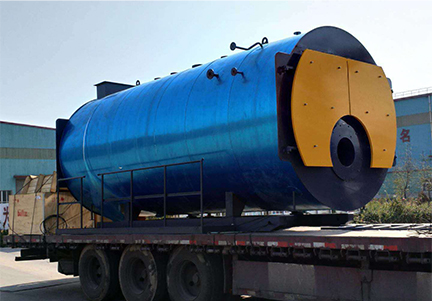Commercial Electric Steam Boiler Solutions for Efficient Heating
Understanding Commercial Electric Steam Boiler Products
In today’s industrial landscape, steam boilers play an essential role in various applications, from food processing to manufacturing and power generation. Among the diverse types available, commercial electric steam boilers are gaining popularity due to their efficiency, environmental benefits, and easy operation. This article explores the critical aspects of commercial electric steam boiler products, highlighting their features, advantages, and applications.
Commercial electric steam boilers are designed to produce steam using electricity as their primary energy source. Unlike traditional fossil fuel-powered boilers, these units offer a cleaner and more efficient alternative. They eliminate the emissions associated with burning oil or gas, making them an ideal choice for facilities aiming to reduce their carbon footprint and comply with environmental regulations.
One of the standout features of commercial electric steam boilers is their compact size. These boilers are designed to occupy minimal space while delivering significant steam output. This is particularly advantageous for businesses operating within limited physical footprints, allowing them to maximize their operational efficiency without compromising on space. Furthermore, the modular design of many electric boilers enables easy scaling and customization, accommodating the specific needs of different industries.
Efficiency is another critical aspect of electric steam boilers. With their high efficiency ratings, these boilers can convert a substantial portion of electrical energy into steam, often reaching efficiencies above 90%. This high performance translates into lower operational costs, as businesses spend less on energy consumption. Additionally, electric steam boilers maintain consistent steam quality, ensuring that they meet the stringent requirements of various applications.
commercial electric steam boiler products

In terms of safety, commercial electric steam boilers are equipped with a range of safety features, including automatic shut-off systems, pressure relief valves, and advanced control systems. These mechanisms help prevent overheating and over-pressurization, ensuring the safe operation of the equipment. Moreover, with fewer moving parts compared to traditional boilers, electric steam boilers tend to require less maintenance, further enhancing their reliability.
The versatility of electric steam boilers allows them to cater to a wide array of industries. In the food and beverage sector, they are often used for cooking, sterilization, and cleaning processes. In the textile industry, they provide steam for dyeing and finishing fabrics. Additionally, in healthcare, electric steam boilers are crucial for sterilizing equipment and supplies in hospitals and clinics.
As businesses become increasingly aware of the environmental and economic benefits associated with electric steam boilers, the demand for these products continues to grow. Manufacturers are continuously innovating and improving boiler designs, technology, and efficiency, contributing to a more sustainable future.
In conclusion, commercial electric steam boiler products present an effective and eco-friendly solution for various industrial applications. Their compact design, high efficiency, robust safety features, and versatility make them an ideal choice for businesses looking to enhance their operations while minimizing their environmental impact. As the industry continues to evolve, electric steam boilers are set to play a pivotal role in shaping a more sustainable industrial landscape.
-
Top Electric Steam Boiler Manufacturers - High Efficiency SolutionsNewsJul.30,2025
-
Top Electric Steam Boiler Manufacturers – Efficient Industrial SolutionsNewsJul.29,2025
-
Top Electric Steam Boiler Manufacturers | Reliable Industrial SolutionsNewsJul.29,2025
-
OEM Steam Boiler Solutions for Custom Needs | High Efficiency & VersatilityNewsJul.29,2025
-
High-Efficiency Thermal Oil Boiler for Industrial Heating SolutionsNewsJul.29,2025
-
Top Electric Steam Boiler Manufacturers for Industrial EfficiencyNewsJul.28,2025

